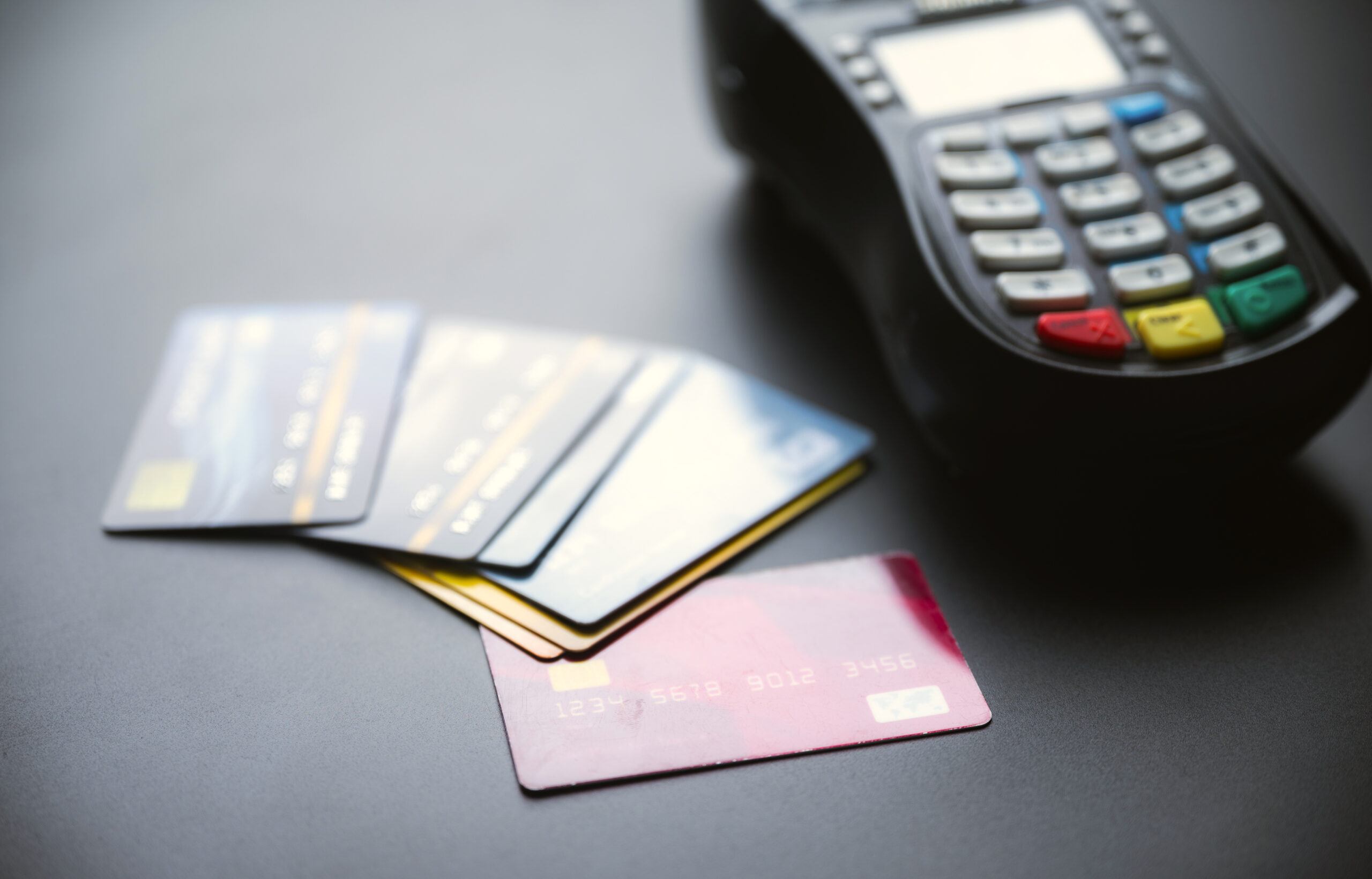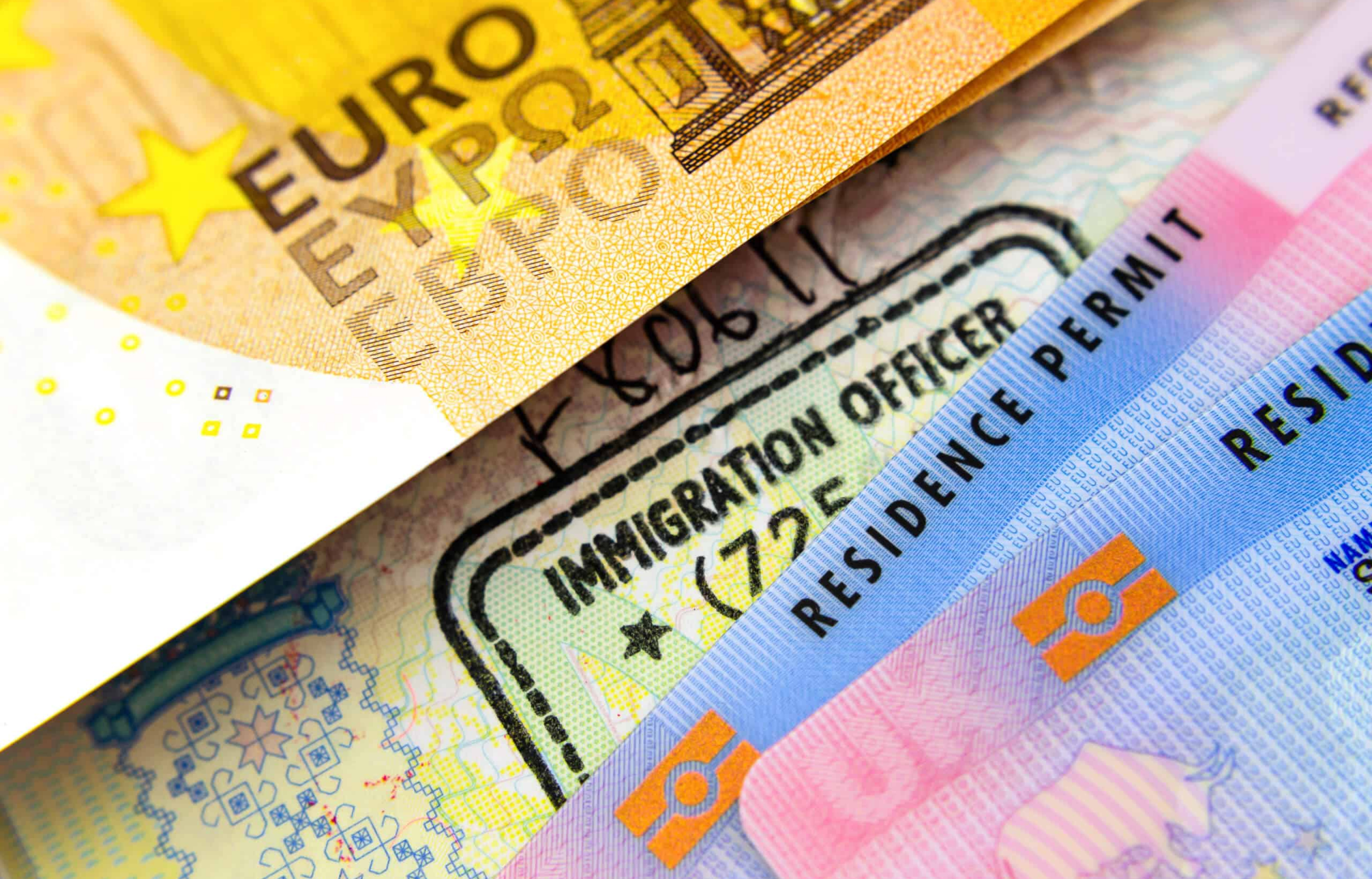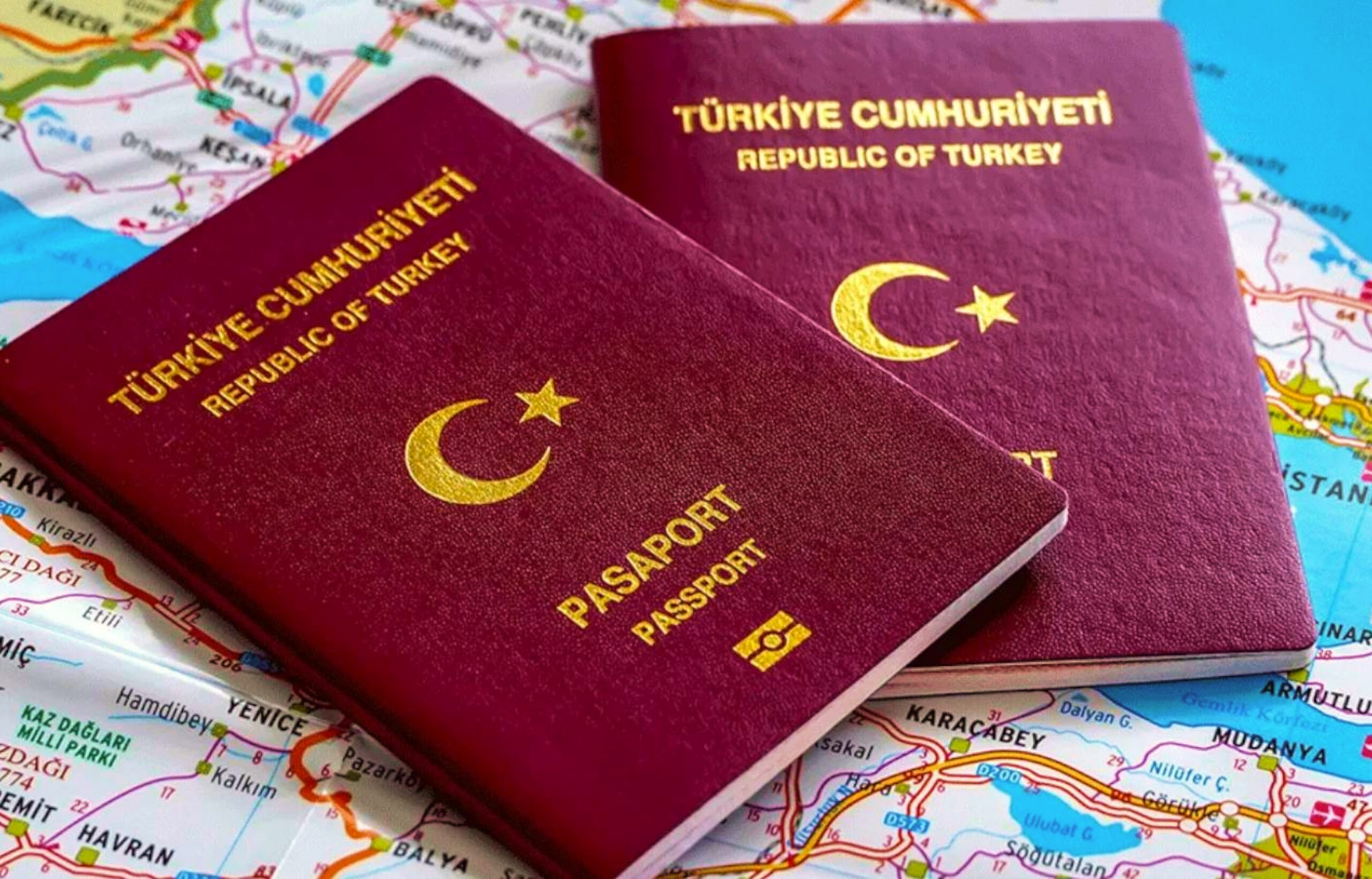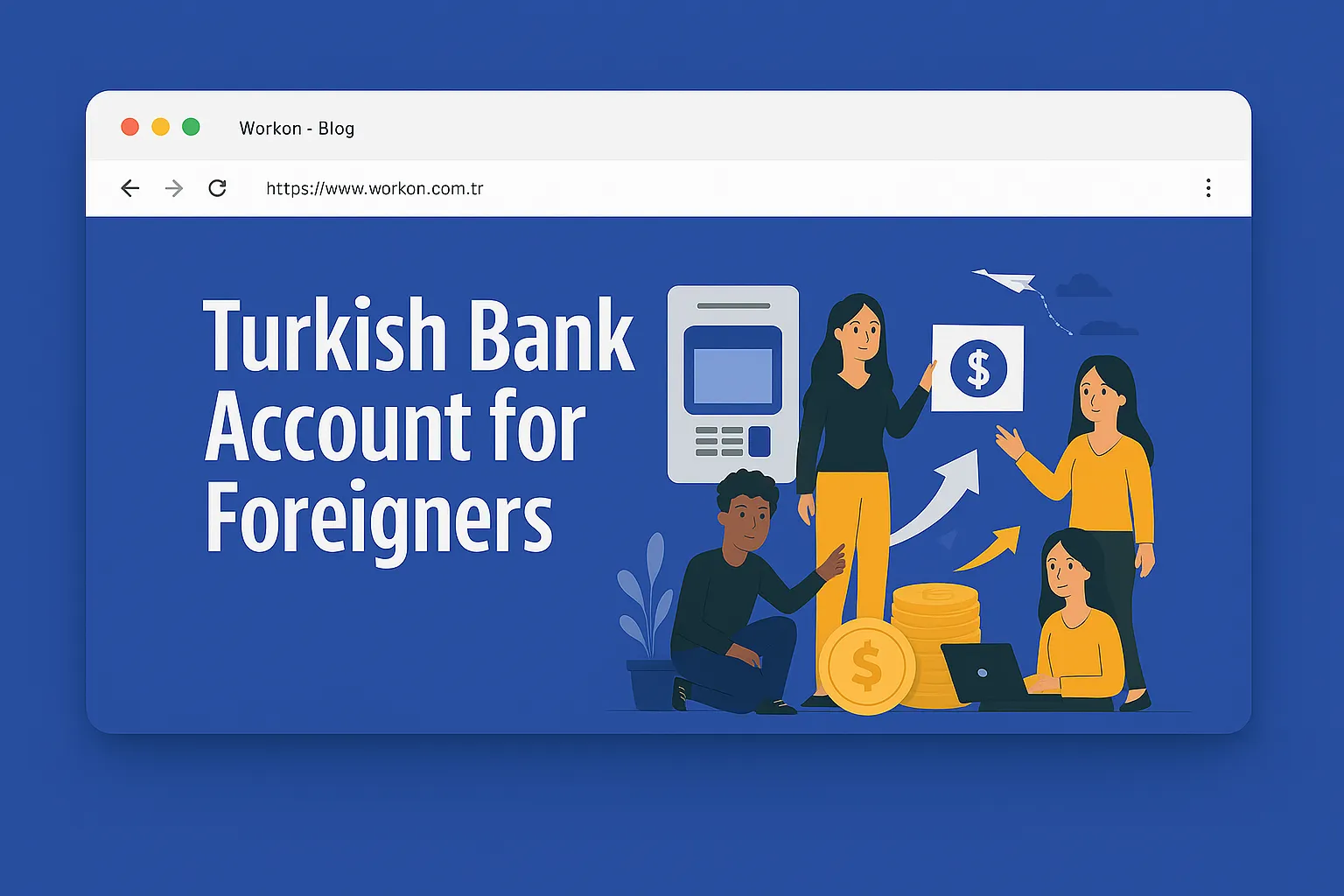Why a Turkish Bank Account Is Essential for Expat Success
Managing your finances in Turkey as a foreigner without a local bank account can be challenging. It isn’t simply about convenience; it’s about integrating into the financial system and accessing opportunities otherwise unavailable. Discussions with expats, both new arrivals and long-term residents, consistently emphasize the important role a Turkish bank account plays.
Avoiding Hidden Fees and Exchange Rate Losses
One immediate benefit is avoiding the high fees and unfavorable exchange rates that come with using foreign cards or international money transfers. Think about paying daily expenses or receiving your salary with constant deductions. A Turkish bank account eliminates these costs, helping you keep more of your earnings. Managing your finances in Turkish Lira (TRY) also protects you from exchange rate fluctuations that can impact your budget.
Accessing the Turkish Digital Economy
Turkey is increasingly adopting digital finance. From paying bills to investing, a Turkish bank account is essential for participating in this evolving system. Many services and online platforms require a Turkish IBAN for transactions, making a local account essential. This includes setting up utilities and using online shopping platforms designed for the Turkish region.
Furthermore, a Turkish bank account helps you build a local credit history. This is important for securing loans, mortgages, or other financial products, opening up opportunities like investing in property. Turkey’s financial inclusion has been growing, with approximately 73.37% of the population over 14 having bank accounts in 2021, up from 67.66% in 2017. This increasing access to financial services can make it easier for foreigners to integrate into the system. Explore this topic further here.
Simplifying Tax Compliance and Investment Opportunities
Navigating tax compliance in a foreign country can be complex. A Turkish bank account simplifies this process. It creates a clear record of your financial transactions within Turkey, making it easier to file taxes and demonstrate compliance. A local account also unlocks investment opportunities specifically for the Turkish market. You can access a broader range of investment products, potentially with higher returns, and manage them efficiently within the local system.
Securing Property and Long-Term Investments
A Turkish bank account is often a requirement for those considering property purchases or long-term investments in Turkey. It facilitates larger transactions and shows your commitment to the local market, which can be beneficial when competing with other buyers or seeking financing. Holding funds locally streamlines managing investments and receiving rental income. A local account simplifies transactions, reduces administrative burdens, and lets you respond quickly to market opportunities. This financial stability is a critical factor for long-term success in Turkey’s economic environment.

Turkish bank accounts provide the foundation for securing property and managing long-term investments in Turkey.
Document Checklist: What You Actually Need (And What You Don’t)
Opening a Turkish bank account as a foreigner can feel overwhelming. Conflicting information online adds to the confusion. To clear things up, we’ve consulted directly with bank managers across Turkey. Whether you’re on a short vacation or putting down roots, this guide will simplify the account opening process.
Essential Documents: Your Foundation
The core requirements for foreigners opening a Turkish bank account are generally straightforward:
- Passport: Your original passport, valid for at least six months, is mandatory. A clear copy of the photo page and any visa stamps is also typically required.
- Tax Identification Number (Vergi Kimlik Numarası – VKN): Getting your VKN is easy. Visit your local tax office (Vergi Dairesi) with your passport.
- Proof of Address: This can be tricky for newcomers. A recent utility bill (electricity, water, gas) is ideal. A registered lease agreement is often accepted. Some banks are more flexible, accepting official mail with your Turkish address.
- Application Form: Each bank has its own form, usually found at the branch or on their website.
Navigating Proof of Address Challenges
Securing a utility bill can be a catch-22 for new arrivals. However, workarounds exist. If you’re initially in a hotel, a confirmation letter along with your passport entry stamp might be sufficient. For longer stays, starting a utility contract in your name, even before your first bill arrives, may be acceptable.
Account Type Variations
The specific documents needed may vary slightly based on the account type.
- Standard Accounts: For everyday transactions, these accounts typically have minimal requirements.
- Premium Accounts: Offering extra perks, these may require proof of income or a larger initial deposit. Some banks offer expat-specific premium accounts with multilingual support and international transfer benefits.
- Investment Accounts: If you’re interested in accessing Turkish financial markets, expect to provide more detailed financial documentation.
To clarify these differences, the table below outlines the document requirements for each account type.
Document Requirements by Account Type
Comparison of required documents for different types of Turkish bank accounts available to foreigners.
| Document Type | Standard Account | Premium Account | Investment Account | Foreign Currency Account |
|---|---|---|---|---|
| Passport | Required | Required | Required | Required |
| VKN | Required | Required | Required | Required |
| Proof of Address | Required | Required | Required | Required |
| Proof of Income | Not Required | Sometimes Required | Often Required | May be Required |
| Initial Deposit | Minimum May Apply | Higher Minimum | Higher Minimum | May Vary |
As shown in the table, while the core documents remain consistent, proof of income and initial deposit requirements increase with account complexity. Foreign currency accounts often have similar requirements to standard accounts, though the initial deposit may differ based on the currency.

A visual guide to document requirements for different Turkish bank accounts — standard, premium, investment, and foreign currency.
Unwritten Rules and Insider Tips
Beyond the official checklist, a few practical tips can make a difference. Dressing respectfully shows bank staff you’re serious. Visiting during off-peak hours can improve service. Learning basic Turkish phrases, even if you’re not fluent, can be helpful. Asking about fees for international transfers and currency exchange upfront can save you money. Understanding these nuances can streamline the process, setting you up for financial success in Turkey.
The Foreigner-Friendly Banks: Who Actually Wants Your Business
Opening a Turkish bank account as a foreigner can be a smooth experience or a major headache. The difference often comes down to choosing the right bank. Some Turkish banks have adapted to serving international clients, while others seem less equipped. Based on conversations with branch managers and expat experiences, this section explores which banks genuinely cater to foreigners and which ones might leave you struggling.
Navigating the Turkish Banking System
Finding a foreigner-friendly bank is essential for managing your finances in Turkey. Look for banks with multilingual staff, particularly English speakers. English-language contracts are vital for understanding your account terms. Dedicated expat services, like international account management and specialized financial advice, can also be extremely helpful.
Essential Features for International Accounts
Several key features set truly foreigner-friendly banks apart:
- Seamless English Mobile and Online Banking: Manage your finances anytime, anywhere, without language barriers.
- Dedicated Expat Relationship Managers: Personalized service and support can be invaluable in a new banking system.
- Convenient Branch Locations: Banks with branches in expat-heavy areas offer greater accessibility.
- Transparent Fee Schedules: Clearly understanding the costs of international transfers, currency exchange, and other services is essential.
- Efficient Account Opening Procedures: Some banks have streamlined the application process for foreigners, reducing paperwork and wait times.
Choosing the Right Bank
Selecting the right bank involves more than just checking off features. Consider these factors:
- Customer Service Quality: Prioritize banks known for responsive and helpful customer support for international clients.
- Digital Banking Capabilities: A robust online and mobile banking platform is key for convenient financial management.
- Foreign Currency Accounts: Access to accounts in multiple currencies simplifies international transactions and helps manage exchange rate risks.
The number of foreign banks in Turkey has seen a slight uptick over the years. In 2014, there were 19 foreign banks operating in Turkey. By 2018, that number rose to 21, remaining steady through 2023. This stability suggests a consistent environment for international banking. You can find more detailed statistics at Statista.
Comparison of Top Banks for Foreigners in Turkey
To simplify your decision-making process, we’ve compiled a comparison table highlighting foreigner-friendly features at major Turkish banks. This table offers a detailed comparison of services, fees, and features designed for international clients.
| Bank Name | English Support | Documentation Ease | Foreign Currency Options | International Transfer Fees | Mobile Banking in English | Branches in Tourist Areas |
|---|---|---|---|---|---|---|
| (Bank A) | Excellent | Easy | USD, EUR, GBP | Competitive | Yes | Numerous |
| (Bank B) | Good | Moderate | USD, EUR | Moderate | Yes | Several |
| (Bank C) | Moderate | Moderate | USD, EUR | High | Limited | Few |
| (Bank D) | Good | Easy | USD, EUR, GBP, JPY | Competitive | Yes | Many |
| (Bank E) | Excellent | Easy | USD, EUR, GBP, CHF, CAD, AUD | Low | Yes | Extensive Network |
(Note: This table is for illustrative purposes. Replace (Bank A), (Bank B), etc. with actual Turkish bank names and complete the details based on your research.)
As shown in the table, Bank E stands out with excellent English support, a wide range of foreign currency options, low international transfer fees, and an extensive branch network in tourist areas. While Bank A also offers excellent support and multiple currency options, its fee structure may be less competitive than Bank E. Bank C presents challenges with limited English support and fewer branches convenient for foreigners.
Premium Services for Expats
Some banks go the extra mile, providing premium services tailored to expats. These might include:
- Dedicated Expat Banking Packages: These often bundle benefits like preferential exchange rates, reduced fees, and multilingual support.
- Investment Advisory Services: Guidance on investing in the Turkish market can be valuable for long-term residents.
- Property Purchase Support: Some banks assist foreigners buying property, offering mortgage advice and financing.

Premium Banking Services for Expats in Turkey
Making the Right Choice
By carefully considering your needs and researching your options, you can find a Turkish bank account that supports your financial goals and simplifies your life in Turkey. Choosing wisely allows you to focus on enjoying your time in the country, rather than wrestling with banking challenges.
Walking Through Your First Bank Visit: What to Expect
Forget generic advice. Let’s discuss what really happens when you, a foreigner, enter a Turkish bank. We’ve compiled firsthand accounts from expats who have opened accounts in Turkey to give you a clear understanding of the process.

A visual representation of a respectful and professional bank visit for expats opening a Turkish bank account.
Making A Good First Impression
First impressions are important. While a suit isn’t required, dressing respectfully shows you’re serious and can influence how bank staff perceive you. Think of it like meeting a potential business partner; you want to present yourself professionally.
For a smoother visit, plan to go during off-peak hours. Mid-morning or early afternoon usually have shorter wait times than opening or closing times, when the branch is typically busier. This allows for more personalized interaction with bank personnel.
Navigating The Language Barrier
While many bank employees in major Turkish cities speak English, particularly in areas with larger expat communities, knowing some basic Turkish can be beneficial. Simple greetings like “Merhaba” (hello) and “Teşekkür ederim” (thank you) show respect and can make a positive impact.
Handling The Paperwork And Process
Bring all necessary documents (passport, Tax Identification Number (VKN), and proof of address) along with copies. Be prepared for the possibility of needing extra documents, as experiences can differ. Some banks may ask for a letter of introduction from your employer or further proof of your finances. This highlights the importance of initially selecting a foreigner-friendly bank. Workon can provide invaluable assistance in navigating these often complex procedures to get your Turkish bank account for foreigners set up smoothly.
Asking The Right Questions
Before signing anything, ask questions. Clarify all fees associated with your account, including those for international transfers, currency exchange, and account maintenance. Don’t hesitate to ask about different account types and their associated services.
Understanding these details upfront prevents surprises and ensures the account fits your needs. For example, if you plan on making regular international money transfers, inquire about corresponding banks and related fees. Think of this stage as negotiating a contract—you need all the relevant information to make an informed choice.
Setting Up Digital Banking And Beyond
After your account is open, set up digital banking access immediately. This usually involves activating a mobile app or online banking platform. Verify the international transfer functionalities to guarantee smooth transfers to and from your home country.
Establish a connection with your assigned bank representative for future assistance. This personal contact can be extremely helpful when dealing with any problems or needing specific banking services. It’s like having a dedicated contact person at any service provider, offering a direct line of support when you need it.
Handling Unexpected Situations
Sometimes, provided information can be confusing or contradictory. If this happens, politely request clarification. If necessary, consult with a Turkish speaker who can assist you. Document all interactions and keep copies of everything you sign.
This detailed record is crucial if any disputes or misunderstandings arise later. This proactive approach is comparable to keeping a travel journal; it allows you to retrace your steps and provides a record if needed. Opening a Turkish bank account is an important part of integrating financially in Turkey. By being prepared, informed, and proactive, you can make this potentially challenging process a positive step towards managing your money in Turkey.
Maximizing Your Banking Options as a Non-Citizen
Opening a basic Turkish bank account is just the first step for non-citizens. A wide array of financial opportunities often remains untapped. This section, informed by expert advice from financial advisors specializing in expat clients, explores the full range of banking products available to you.
High-Return Opportunities and Investment Vehicles
Look beyond basic savings accounts and consider high-interest deposit accounts designed for foreigners. Many Turkish banks offer competitive interest rates, often exceeding those found in Western savings options. This can be particularly appealing for those seeking to optimize their returns in the current financial environment. Furthermore, Turkey’s unique economic conditions create distinct investment possibilities. Some banks offer specialized investment vehicles specifically structured to capitalize on this market.
Mortgages and Premium Services
If property investment in Turkey is on your horizon, securing a mortgage is a key consideration. Several Turkish banks provide specialized mortgage products designed for foreign property buyers. These products frequently include features tailored to the needs of international clients, such as flexible repayment schedules and multi-currency options. In addition, some banks extend premium banking services to foreigners, with more attainable qualification criteria than you might expect. These premium accounts typically offer perks like personalized support from dedicated relationship managers, priority service, and preferential exchange rates.
Strategic Account Combinations and International Lifestyles
Combining multiple account types strategically can create tax advantages. Holding accounts in different currencies offers currency diversification, mitigating the risks associated with fluctuating exchange rates. This is particularly valuable in volatile markets. Certain Turkish banking products can also offer surprising benefits for those who live an international lifestyle. Some banks provide international debit cards with minimal foreign transaction fees, simplifying transactions while traveling or residing abroad. While detailed information specifically regarding Turkish bank accounts for foreigners can be challenging to locate, the growing trend towards greater financial inclusion suggests a variety of options are available. The Central Bank of the Republic of Turkey (CBRT) publishes extensive banking statistics, though these typically don’t distinguish between accounts held by residents and non-residents. The presence of foreign bank branches and subsidiaries within Turkey further indicates established systems enabling international clients to participate in the Turkish banking system. Discover more insights about this topic here.
Navigating Investment Restrictions and Optimizing Your Banking Structure
Understanding investment restrictions that apply specifically to foreign account holders is crucial. Financial advisors specializing in expat banking can offer valuable guidance on these regulations and help you identify suitable and compliant investment opportunities. As your ties to Turkey deepen, so too should your banking strategy. Whether you’re a temporary resident, a frequent visitor, or planning to settle long-term, adapting your banking approach can unlock substantial benefits. Consulting with Workon can streamline your experience with Turkish bank accounts for foreigners. They can assist in navigating complex banking regulations and provide tailored advice to optimize your overall financial strategy in Turkey.
By exploring the diverse range of available banking products and adopting a strategic approach, you can maximize your financial potential in Turkey. Choosing the right bank and cultivating a strong relationship with your bank manager are essential elements of long-term financial success.
Remote Account Management: Banking While Abroad
For individuals splitting their time between Turkey and another country, or for international investors, managing a Turkish bank account remotely is crucial. This section offers practical advice, based on the experiences of seasonal residents and global travelers, for maintaining control over your finances no matter where you are.
Navigating International Access and Security
Not all Turkish banks offer the same level of international accessibility. Some boast robust online and mobile banking platforms that work seamlessly worldwide, while others impose geographic restrictions, limiting access from specific countries. Before committing to a bank, thoroughly research its international banking capabilities. This due diligence can save you significant frustration later on.
Security is another key consideration. Many Turkish banks utilize SMS verification for online transactions. This presents a challenge when you’re outside Turkey and your Turkish SIM card isn’t active. Consider banks that offer alternative verification methods, such as email or authenticator apps, for easier access while abroad.
Power of Attorney and Currency Conversion
Setting up a power of attorney can be incredibly helpful. It allows a designated individual in Turkey to manage your account on your behalf, handling tasks like bill payments or deposits while you’re away. However, confirm that your chosen bank recognizes and accepts power of attorney arrangements for foreign account holders. Some banks have particular requirements that must be met.
Managing currency conversion is also important. Transferring money between countries often involves exchange rate fluctuations and fees. Research banks offering competitive exchange rates for international transfers. Also, explore currency exchange platforms that may offer more favorable rates. Minimizing these exchange rate losses is vital to protecting your finances.
Automatic Payments and Compliance
Maintaining automatic payments while abroad is essential. Services such as utilities and subscriptions might be linked to your Turkish bank account. Verify that your chosen bank enables you to set up and manage these payments even when you’re not physically in Turkey. Some banks may require specific authorizations or pre-arranged instructions for recurring payments.
Staying compliant with both Turkish and your home country’s financial reporting regulations is also essential. Turkish regulations might mandate reporting specific international transactions, and your home country may have regulations regarding foreign accounts. Consult a financial advisor specializing in international banking to ensure you comply with all applicable regulations.
Geolocation Restrictions and Communication Strategies
Some banks implement geolocation restrictions on their online banking platforms, potentially blocking access from IP addresses outside of Turkey. This can complicate managing your account remotely. While technical solutions like Virtual Private Networks (VPNs) can sometimes bypass these restrictions, be aware that using a VPN could raise security flags with your bank. It’s advisable to inform your bank of your travel plans and intended VPN use to avoid account access issues.
Finally, good communication is vital. When problems arise, addressing them remotely can be challenging. Look for banks with responsive customer support channels easily accessible from abroad. This might include email support, international phone numbers, or online chat. Building a good relationship with your bank manager can also prove beneficial, offering valuable support when navigating complex banking issues remotely. Workon can be a valuable resource in navigating these complexities related to Turkish bank accounts for foreigners, providing support and resources to manage your account effectively while abroad.
Overcoming the Real Challenges Foreign Account Holders Face
Opening a Turkish bank account is a significant step for any foreigner planning to live, work, or invest in Turkey. However, navigating the process isn’t always straightforward. Many expats and foreign business owners encounter unique challenges that can be both frustrating and time-consuming. This section addresses these real-world issues and offers practical solutions based on the experiences of others.
Communication Barriers and Documentation Hurdles
One of the most common frustrations is the language barrier. While some bank staff in major cities speak English, clear communication isn’t always a given. This can be especially problematic when dealing with complex issues or unexpected requests. One effective strategy is preparing a list of key questions and phrases in Turkish beforehand. Even basic Turkish can demonstrate respect and facilitate smoother interactions. Additionally, having a Turkish-speaking friend or colleague accompany you to the bank can be invaluable.
Another hurdle is managing unexpected documentation requests. While the standard requirements are generally straightforward, some banks may require additional paperwork based on individual circumstances. For example, you might be asked for proof of income, a letter from your employer, or more detailed information about your financial history. To avoid delays, keep organized records of all your financial documents and be ready to provide additional information upon request.
Frozen Accounts and Verification Issues
Account verification procedures can also present challenges. Banks are increasingly focused on security, and accounts can sometimes be frozen due to suspected fraudulent activity or discrepancies in the information provided. If your account is frozen, contact the bank immediately and clearly explain the situation. Providing any necessary documentation promptly can help expedite the resolution. Remember to keep records of all communication with the bank for any necessary follow-up.
Currency Volatility and Changing Regulations
The Turkish Lira (TRY) can be volatile. This can impact your finances if you’re receiving income in a foreign currency or making international transfers. Many experienced foreigners use currency exchange platforms to mitigate exchange rate risks. They may also maintain accounts in multiple currencies to diversify their holdings. Managing your Turkish bank account from abroad can be aided by exploring available remote work tools and strategies.
Turkish banking regulations can also change, which can impact how you access and manage your account. Staying informed about these changes is crucial. Subscribe to banking newsletters, follow financial news outlets, and consider consulting with a financial advisor specializing in Turkish banking for foreigners. This proactive approach can help you anticipate and adapt to regulatory shifts effectively.
Resolution Strategies and Step-by-Step Guidance
Here are some specific resolution approaches for common problems:
- International Transfer Delays: Contact both your Turkish bank and the sending/receiving bank to track the transfer’s status. Have the transfer reference number and any other relevant details ready.
- Unexpected Fees: Carefully review your account agreement and fee schedule. If you believe a fee is incorrect, contact the bank and provide supporting documentation.
- Account Access Complications: Ensure your contact information with the bank is current, especially your phone number and email address. If you’re experiencing issues with online banking, contact the bank’s technical support.
These examples are based on real-world resolution experiences. By understanding the potential challenges and implementing practical solutions, you can successfully navigate the Turkish banking system and maximize your financial well-being in Turkey. Workon offers specialized assistance for foreigners opening and managing Turkish bank accounts. Their expertise can simplify the process and help you avoid common pitfalls. Contact Workon to learn how we can assist you with opening your bank account in Turkey.
Ready to open your Turkish bank account hassle-free?
Let our team guide you through every step — click here to get expert help with your application.


























